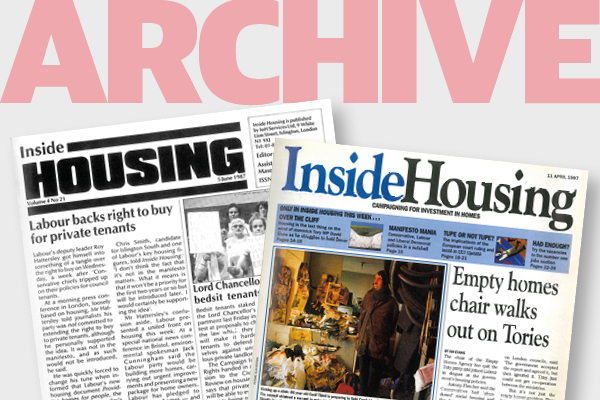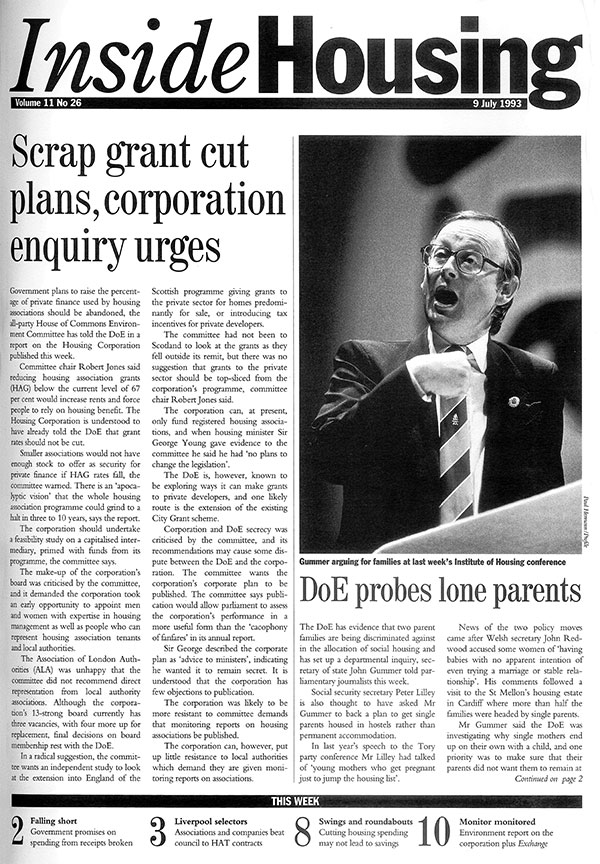You are viewing 1 of your 1 free articles
From the archive - politicians claim allocations discriminate against two-parent families
Inside Housing looks back at what was happening in the sector this week five, 15 and 25 years ago
25 years ago
Scapegoating of single mothers was common in the 1990s, and housing policy was part of this.
On our front page, Inside Housing reported that the Department of the Environment (at that time responsible for housing), had set up a departmental inquiry into whether two-parent families were being discriminated against.
The magazine reported comments from Conservative politicians. Social security secretary Peter Lilley had told the Conservative Party conference of “young mothers who get pregnant just to jump the housing queue”. Welsh secretary John Redwood warned of women “having babies with no apparent intention of even trying a… stable relationship”.
The Conservatives wanted to change legislation so single mothers were housed in hostels instead of allocated their own home.
15 years ago
Soaring pay for chief executives was in dispute 15 years ago. Inside Housing did a story on Dumfries & Galloway Housing Partnership in Scotland, which had just been formed through a council stock transfer.
Independent consultants had recommended a 30% salary hike for Yvonne MacQuarrie, then chief executive of Dumfries & Galloway, to £99,000. However the organisation’s board rejected the proposal, with one board member resigning in protest at the “fat cat” increase.
The local Labour member of the Scottish Parliament, Elaine Murray, had also weighed in against the original proposals, which she called “inappropriate”.
Instead, Ms MacQuarrie was offered an 8% rise, taking her pay to £80,000 a year.
In 2017, Zoe Forster, the current chief executive of Dumfries & Galloway, took home £114,490,
Inside Housing found in our annual survey of chief executive salaries.
This was by now on the low end, with average pay for the top job reaching £166,205 a year in 2016/17.
Birmingham Town Hall (picture: Very Quiet via Flickr)
Five years ago
In the first month of the bedroom tax, English councils saw applications for their hardship funds rise 300%.
The councils received nearly 18,000 applications for Discretionary Housing Payments in April 2013, compared with only about 4,400 in the same period the year before, Inside Housing revealed.
The results fed worries the £150m funding pot wouldn’t be enough to cope with those worst affected by the bedroom tax, although government had increased the size of this funding from £60m as it brought in the policy.
Birmingham Council (left) had received the most applications, and had spent £400,000 of the £716,000 the government had suggested was set aside for the bedroom tax, only a few months into the year.


